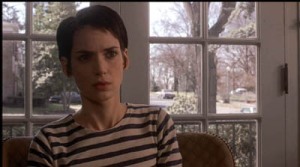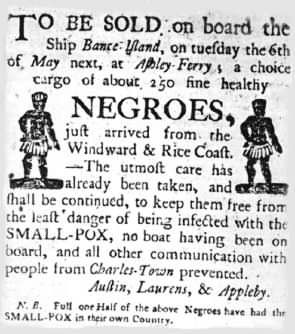 I watched the movie Girl Interrupted. I found it highly disturbing! For those of you, who haven’t seen the movie or know the storyline, click here.
I watched the movie Girl Interrupted. I found it highly disturbing! For those of you, who haven’t seen the movie or know the storyline, click here.
Susanna Kaysen, questions the idea of being sane and insane. What is perceived as sane? Is being sane really about hiding the insane parts of you so that they will let you out of a mental institution? Maybe “Sometimes the only way to stay sane is to go a little crazy.”
When Lisa and Susanna break out of Claymoore with the intention of going to work in Walt Disney resort, they meet a gang of hippies. The conversation with one of the hippies goes:
- Susanna Kaysen: You don’t want me, Tony.
- Tony: Yes I do, baby.
- Susanna Kaysen: No, you don’t, I’m a crazy girl.
- Tony: You’re crazy so we can’t one night of bliss?
- Susanna Kaysen: I am a crazy girl, seriously.
- Tony: You’ve been in a hospital.
- Susanna Kaysen: Yes.
- Tony: Do you see purple people? My friend, he saw purple people. And so the state came and took him away. He didn’t like that. Some time went by and, and he told ’em he didn’t see pueple people no more.
- Susanna Kaysen: He got better.
- Tony: Nah, he still sees ’em.
So here we see that the purple-visions friend has really not been cured of his purple visions. He lets people think he has been cured of them, so  that they would let him go. So is he sane because he was smart enough to know which part of himself he had to suppress or was he insane because he was still having the purple visions? When he stopped telling people about his purple visions, people stopped thinking he was crazy. Is being sane or normal the equivalent of trying to fit in and be part of the crowd? What about Joan of Arc, she had visions and heard voices? The church called insane, heretical and burnt her at the stake and a few centuries later hailed her as a saint. So is sanity really about acting smart and survival?
that they would let him go. So is he sane because he was smart enough to know which part of himself he had to suppress or was he insane because he was still having the purple visions? When he stopped telling people about his purple visions, people stopped thinking he was crazy. Is being sane or normal the equivalent of trying to fit in and be part of the crowd? What about Joan of Arc, she had visions and heard voices? The church called insane, heretical and burnt her at the stake and a few centuries later hailed her as a saint. So is sanity really about acting smart and survival?
Another character in the movie, Daisy Rathbone, a sex abuse victim in an incestuous relationship with her dad is also let out of the mental institution. She goes back to live with her dad, though everyone including her therapist knows that her relationship with her dad is skewered. Also her stay at the institution had not in anyway dampened her enthusiasm for her father. She has a love and hate relationship with him. Love or strong feelings; some thing keeps her coming back to him. She is also shown to have strong hatred for him, because she’s  constantly trying to kill herself because of the incest. She also has an eating disorder.
constantly trying to kill herself because of the incest. She also has an eating disorder.
But she’s let out of the mental institution. Other inmates deem “it unfair.” She commits suicide within a few weeks of her release. So is being sane, really about proving to society that you are sane and not real sanity?
- Georgina Tuskin: Lisa, is Daisy really getting out?
- Lisa Rowe: Yeah, she coughed up a big one.
- Susanna Kaysen: But how could – I mean she’s… insane.
- Lisa Rowe: Yeah, well that’s what ther-rape-me’s all about. That’s why fuckin’ Freud’s pictures on every shrink’s wall. He created a fuckin’ industry. You lie down, you confess your secrets and you’re saved. Ca-ching! The more you confess, the more they think about settin’ you free.
- Susanna Kaysen: But what if you don’t have a secret?
- Lisa Rowe: Then you’re a lifer, like me.
Daisy’s father was obviously a mean, bad guy. When the insane people – Susanna and Lisa – could guess there was something wrong in the relationship, how come the guys with the Ph.Ds in psychology didn’t guess there was something terribly wrong? Why is Daisy allowed to go to this man’s apartment in the first place? And obviously society considered Mr Rathbone, a sane guy or they would have him put in a padded cell along with his daughter. So is being sane really all about showing your best face in society and doing all the horrible, insane things in private? All these questions and more Susanna brings up to break our own comfort zones.
When Angelina confronts Daisy, she tells the truth, unsparingly:
Daisy Rathbone:My father loves me.
Lisa Rowe: I bet. With every inch of his manhood.
- Daisy Rathbone: You’re just jealous, Lisa… because I got better… because I was released… because I have a chance… at a life.
- Lisa Rowe: They didn’t release you ’cause you’re better, Daisy, they just gave up. You call this a life, hmm? Taking Daddy’s money, buying your dollies and your knickknacks. And eating his fuckin’ chicken, fattening up like a prize fuckin’ heifer. You changed the scenery, but not the fuckin’ situation, and the warden makes housecalls. And everybody knows, everbody knows that he fucks you. What they don’t know is that you like it, hmm? You like it.
- Susanna Kaysen: [to Lisa] Shut the fuck up!
- Lisa Rowe: Hey, man, it’s cool, it’s okay. It’s fine, it’s fucking fine! A man is a dick is a man is a dick is a chicken… is a dad… a Valium, a speculum, whatever, whatever. [to Daisy] You like being Mrs. Rathbone. Probably all you’ve ever known.
- Daisy Rathbone: Have fun in Florida. [goes upstairs to her room]
 Angelina or Lisa Rowe is diagnosed or in the girls own words “diag”-nonsense d ” as a sociopath. In a way, Susanna seems to blame Daisy’s death on Lisa, because she commits suicide the morning after the showdown with Lisa. But Lisa was just a trigger, Daisy would have any committed suicide or died within; pretty tough to try liking and living with abuse.
Angelina or Lisa Rowe is diagnosed or in the girls own words “diag”-nonsense d ” as a sociopath. In a way, Susanna seems to blame Daisy’s death on Lisa, because she commits suicide the morning after the showdown with Lisa. But Lisa was just a trigger, Daisy would have any committed suicide or died within; pretty tough to try liking and living with abuse.
At some point, Susanna gets enchanted with Lisa and is almost shown in love with her (witness the kissing scene in the car during the break out). But then, Susanna gets to know who Lisa really is at Daisy’s apartment. Not only does Lisa show no remorse for her earlier comments or for the dead body hanging in front of her, she goes on to steal cash from the dead Daisy.
- Susanna Kaysen: What the fuck are you doing, Lisa?
- Lisa Rowe: I’m playing the villain, baby, just like you want. I try to give you everything you want.
- Susanna Kaysen: No you don’t.
- Lisa Rowe: You wanted your file, I found you your file. You wanted out, I got you out. You needed money, I found you some. I’m fucking consistent. I told you the truth. I didn’t write it down in a fucking book! I told you to your face. And I told Daisy to her face – what everybody knew and wouldn’t say, and she killed herself. And I played the fucking villain, just like you wanted.
- Susanna Kaysen: Why would I want that?

- Lisa Rowe: Because it makes you the good guy, sweet pea. You come back here, all sweetness and light, and sad and contrite, and everybody congratulating you on your bravery. And meanwhile, I’m blowing the guys at the bus station for the money that was in her fucking robe!
I suddenly realised this is the first time I’m posting adult content and I still haven’t even started out saying everything that I wanted to say…But that will have to wait…as its 2 am and I have work tomorrow….Its fascinating the movie and I have lots of insights to share!









